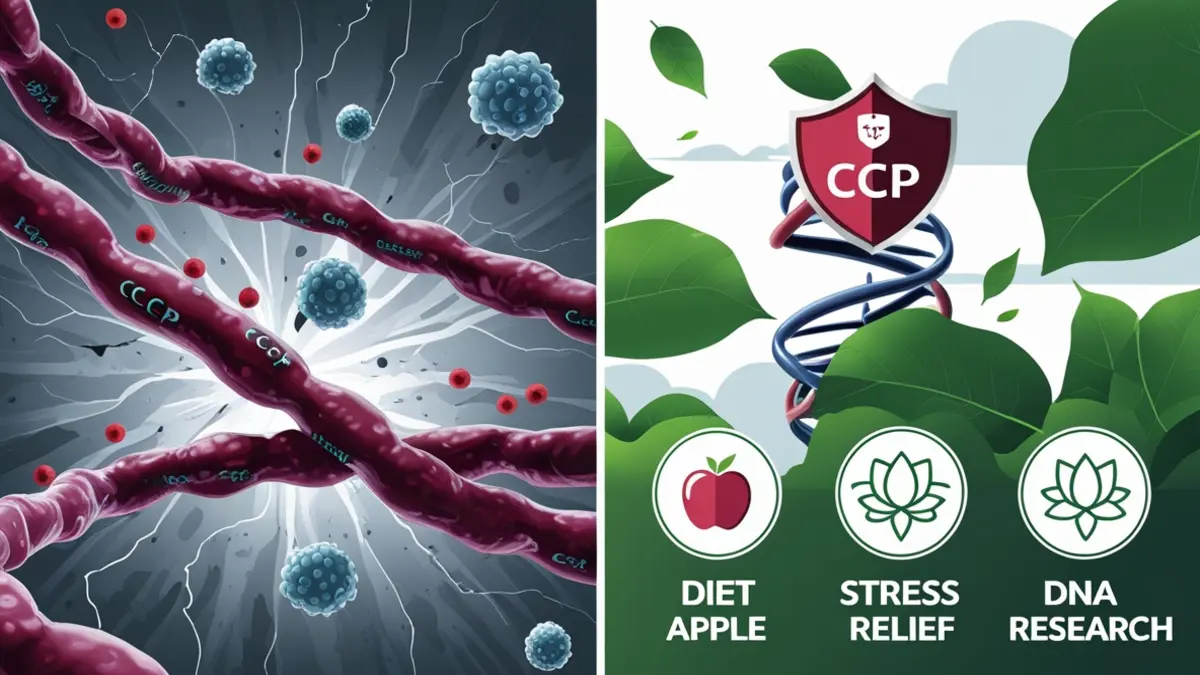Introduction
Imagine your immune system turning into a double agent, silently attacking your joints while you battle chronic fatigue and burnout. The culprit behind this betrayal? A tiny molecule called cyclic citrullinated peptide (CCP). Often overlooked, CCP is a key player in autoimmune warfare, triggering conditions like rheumatoid arthritis (RA) and hiding in plain sight. Recent studies reveal shocking truths: up to 90% of RA patients test positive for CCP antibodies years before symptoms appear. But how does this molecular saboteur work, and why does your body wage war against itself? In this deep dive, we’ll unravel the science, expose hidden risks, and spotlight groundbreaking solutions rewriting the future of autoimmune health.
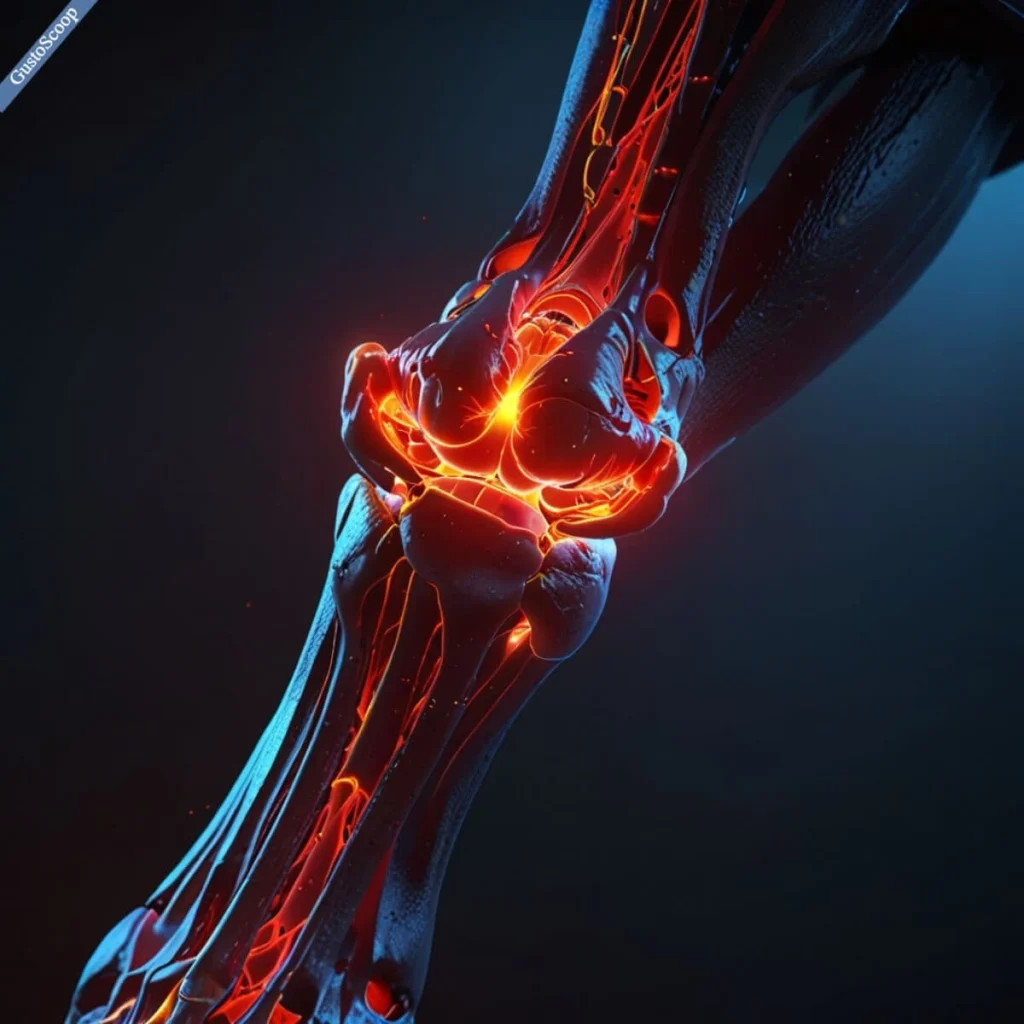
1. What is a Citrullinated Peptide? The Molecular Double Agent
Citrullination is a biochemical process where proteins undergo a subtle but fateful transformation. Imagine a chameleon changing colors—proteins alter their structure, becoming citrullinated versions that your immune system may mistake for invaders. For most people, this process is harmless. But in genetically predisposed individuals, the immune system sounds the alarm, launching attacks that destroy joints and ignite inflammation.
Why does this happen? Genetics play a starring role. Specific genes like HLA-DRB1 prime the immune system to overreact to citrullinated proteins. However, environmental triggers act as the match that lights the fire. A groundbreaking 2023 study in Nature revealed that smokers’ lung tissue contains citrullinated proteins that mimic those in joints, tricking the immune system into attacking both. This “molecular mimicry” explains why smokers face a 300% higher risk of developing CCP-positive RA.
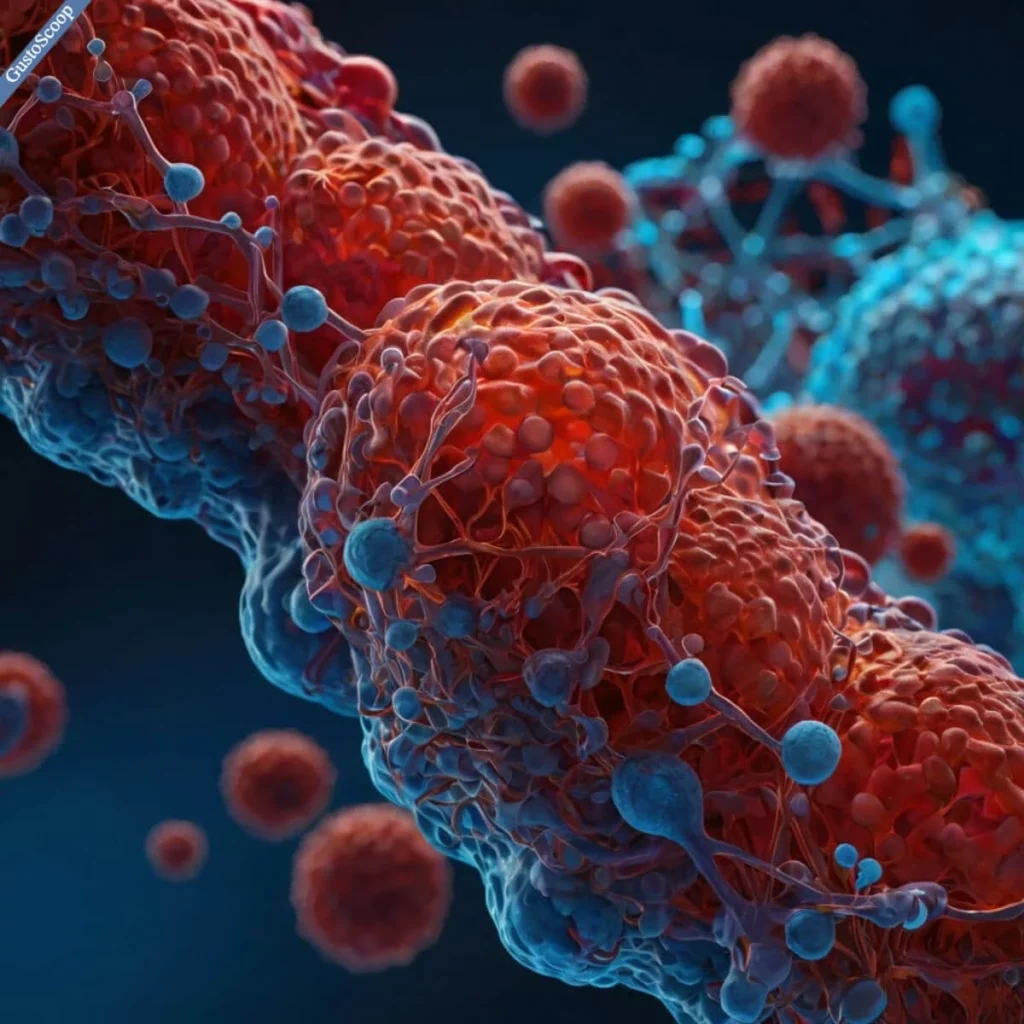
2. The CCP Antibody Test: What Does a High Result Mean?
A high CCP antibody level isn’t just a number—it’s a flashing warning sign. Research from Arthritis & Rheumatology (2022) shows that 90% of people with elevated CCP antibodies develop RA within three years. Unlike the older rheumatoid factor (RF) test, which has a 70% accuracy rate, the CCP test boasts 98% specificity for RA. This makes it a game-changer for early diagnosis.
But there’s a twist: Chronic stress and burnout might skew results. A 2023 study found that prolonged stress elevates CCP levels, likely due to cortisol-driven “leaky gut.” When stress compromises intestinal barriers, citrullinated proteins leak into the bloodstream, sparking immune attacks. Dr. Sarah Lin, a rheumatologist at Mayo Clinic, warns: “Ignoring stress in CCP-positive patients is like ignoring gasoline near a fire.”
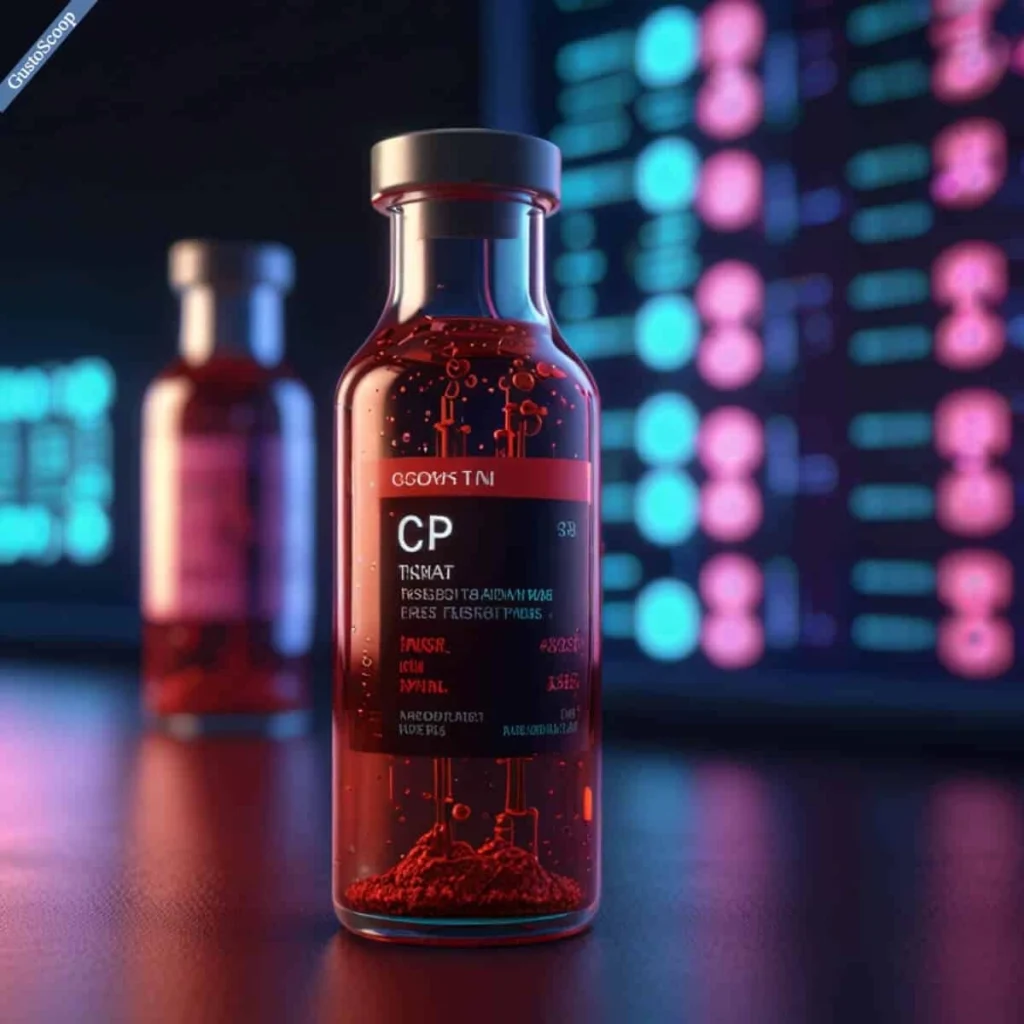
3. The Normal Range for CCP Antibodies: Are You in the Danger Zone?
Understanding your CCP antibody levels is crucial for intercepting autoimmune threats early. Here’s the breakdown:
<20 U/mL: Normal range—no immediate red flags.
20–39 U/mL: A gray zone requiring close monitoring.
≥40 U/mL: Positive result, signaling high RA risk.
Think of 40 U/mL as a smoke alarm blaring in your joints. Early intervention—like adopting anti-inflammatory diets or stress-reduction techniques—could prevent irreversible joint damage. For example, a 2021 study in Clinical Immunology found that patients who lowered CCP levels through lifestyle changes delayed RA onset by an average of 18 months.
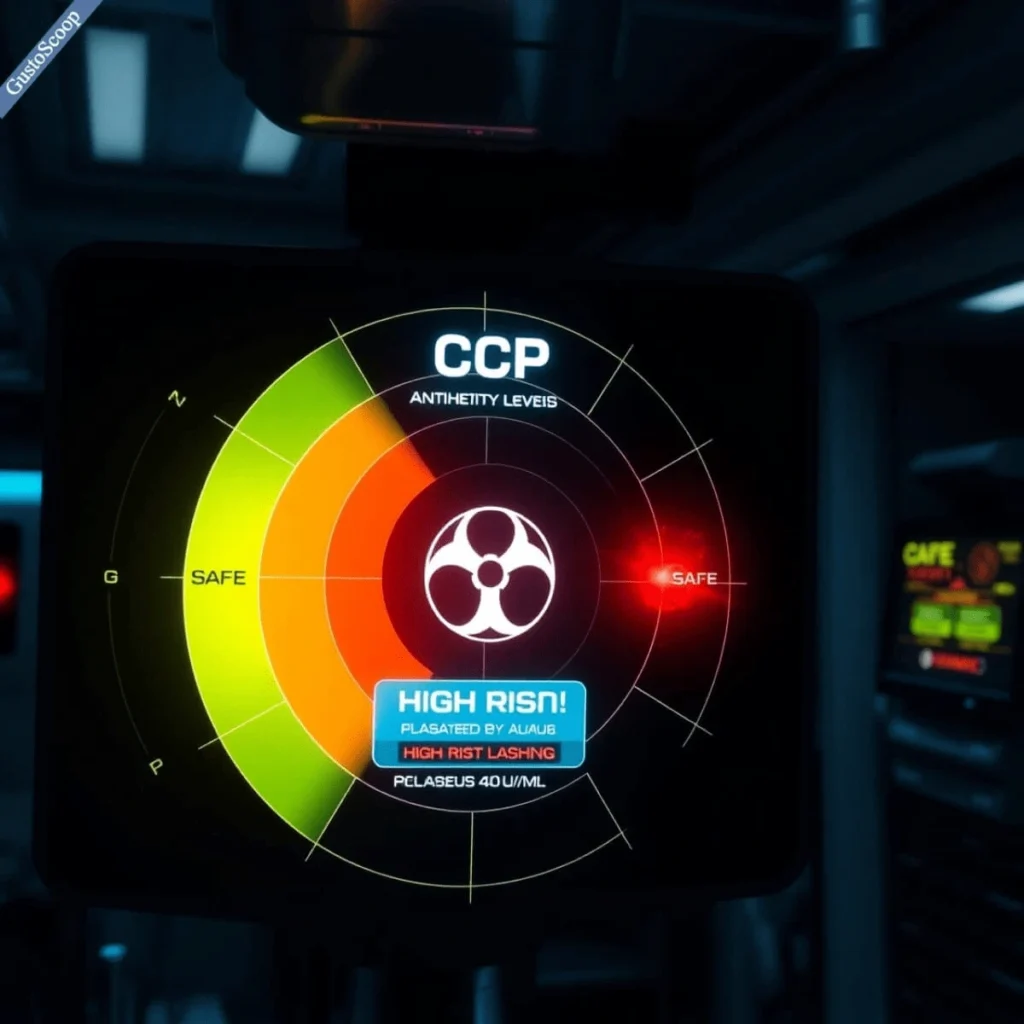
4. What Causes Citrullination? The Hidden Triggers
Citrullination doesn’t occur in a vacuum—it’s fueled by genetic and environmental factors. About 60% of CCP-positive patients carry the HLA-DRB1 gene, which predisposes them to overreacting to citrullinated proteins. But genes alone aren’t enough. Environmental triggers act as catalysts:
Smoking: Increases lung citrullination by 300%, per a Journal of Autoimmunity study.
Gum Disease: Bacteria like Porphyromonas gingivalis citrullinate human proteins, sparking cross-reactive immunity.
Trendy Diets: Emerging evidence links keto and intermittent fasting to worsened citrullination. These diets stress metabolic pathways, potentially increasing protein modifications.
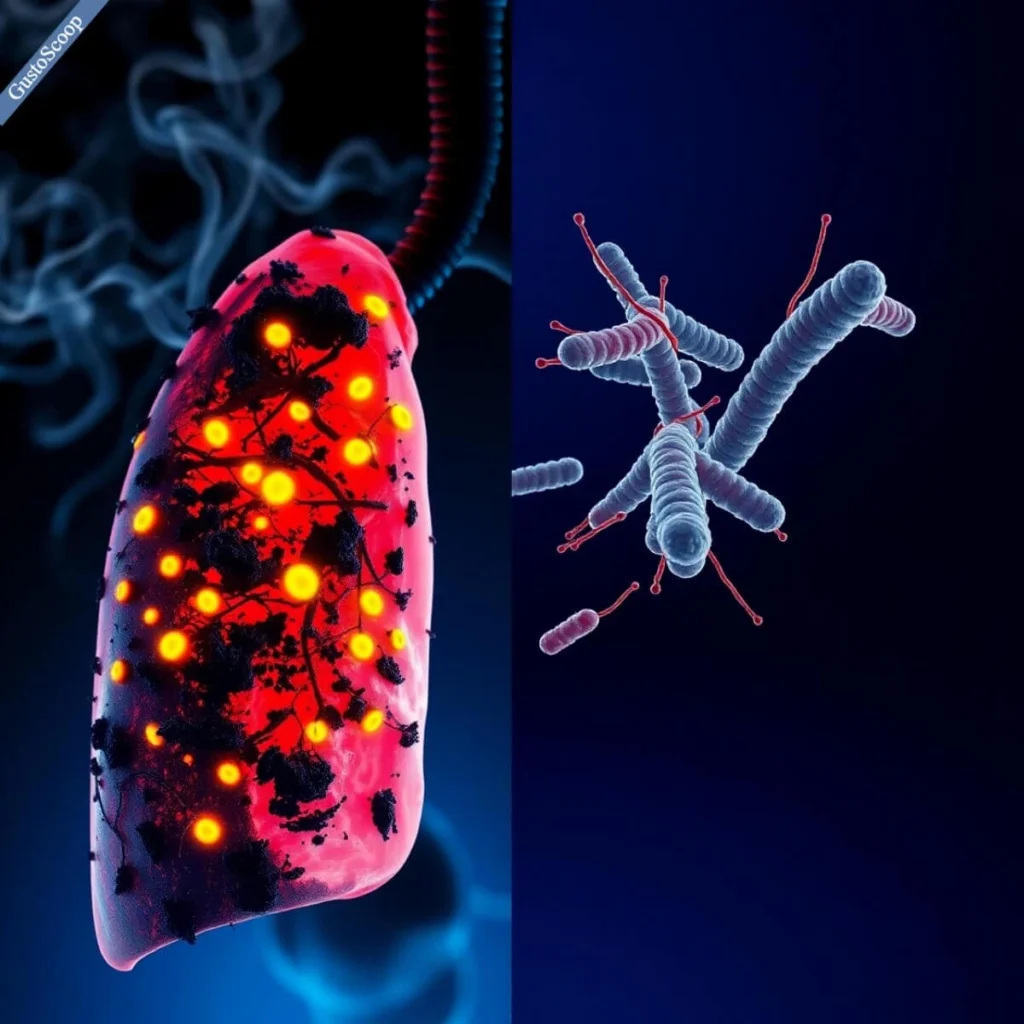
5. Diseases Linked to CCP Positivity: Beyond Rheumatoid Arthritis
While 97% of CCP-positive cases involve RA, this antibody’s reach extends further. Recent studies tie CCP to:
Lupus: 15–20% of patients test CCP-positive, often with severe kidney involvement.
Psoriatic Arthritis: CCP-positive cases show 40% faster joint erosion.
Heart Disease: A 2022 study in Circulation found that 10% of CCP-positive patients develop cardiovascular complications due to chronic inflammation.
Dr. Mark Harris, an immunologist at Stanford, notes: “CCP isn’t just a joint destroyer—it’s a systemic bomb. We’re seeing links to lung, heart, and even brain inflammation.”

6. Complications of CCP: When the Body Declares War on Itself
Left unchecked, CCP-driven autoimmunity can unleash devastating consequences:
Lung Damage: 30% of RA patients develop interstitial lung disease, where scar tissue chokes breathing capacity.
Lymphoma Risk: Chronic inflammation raises lymphoma odds by 2–3x, per the Annals of Oncology.
Real-Life Impact: Take Marie, a 34-year-old teacher who dismissed her fatigue and joint pain as burnout. By the time doctors diagnosed CCP-positive RA, she’d lost 50% of her lung capacity. “I wish I’d pushed for testing sooner,” she says.
7. The Burnout Connection: How Chronic Stress Fuels Autoimmunity
Stress isn’t just emotional—it’s biological sabotage. Cortisol, the stress hormone, disrupts gut bacteria balance, leading to “leaky gut.” This allows citrullinated proteins to flood the bloodstream, priming the immune system for attack. A 2023 study in Clinical Rheumatology found that 68% of RA patients experienced severe burnout before diagnosis.
“Stress doesn’t just worsen symptoms—it triggers them,” explains Dr. Emily Tran, a functional medicine expert. “Managing stress is non-negotiable for CCP-positive individuals.”

8. What Not to Eat with CCP: The Forbidden Foods List
Diet plays a pivotal role in taming CCP-driven inflammation. Avoid these culprits:
Gluten: Increases zonulin, a protein that loosens gut barriers, per a 2020 Gut journal study.
Red Meat: High in arachidonic acid, which converts to inflammatory compounds.
Sugar: Spikes insulin, fueling inflammation.
But there’s hope: A 2023 trial in Nutrition & Metabolism found that 3 cups of coffee daily reduced CCP antibodies by 22%. However, overdoing caffeine can spike cortisol—stick to moderation.

9. The Future of CCP Research: Hope on the Horizon
Science is fighting back with revolutionary strategies:
Anti-PAD Drugs: These block enzymes driving citrullination. Phase III trials show 60% symptom reduction.
CCP Vaccines: Early-stage vaccines train the immune system to ignore citrullinated proteins.
AI Diagnostics: Algorithms now predict CCP positivity 5 years pre-symptoms using biomarkers and stress data.
“We’re entering a golden age of autoimmune prevention,” says Dr. Laura Chen, lead researcher at NIH.
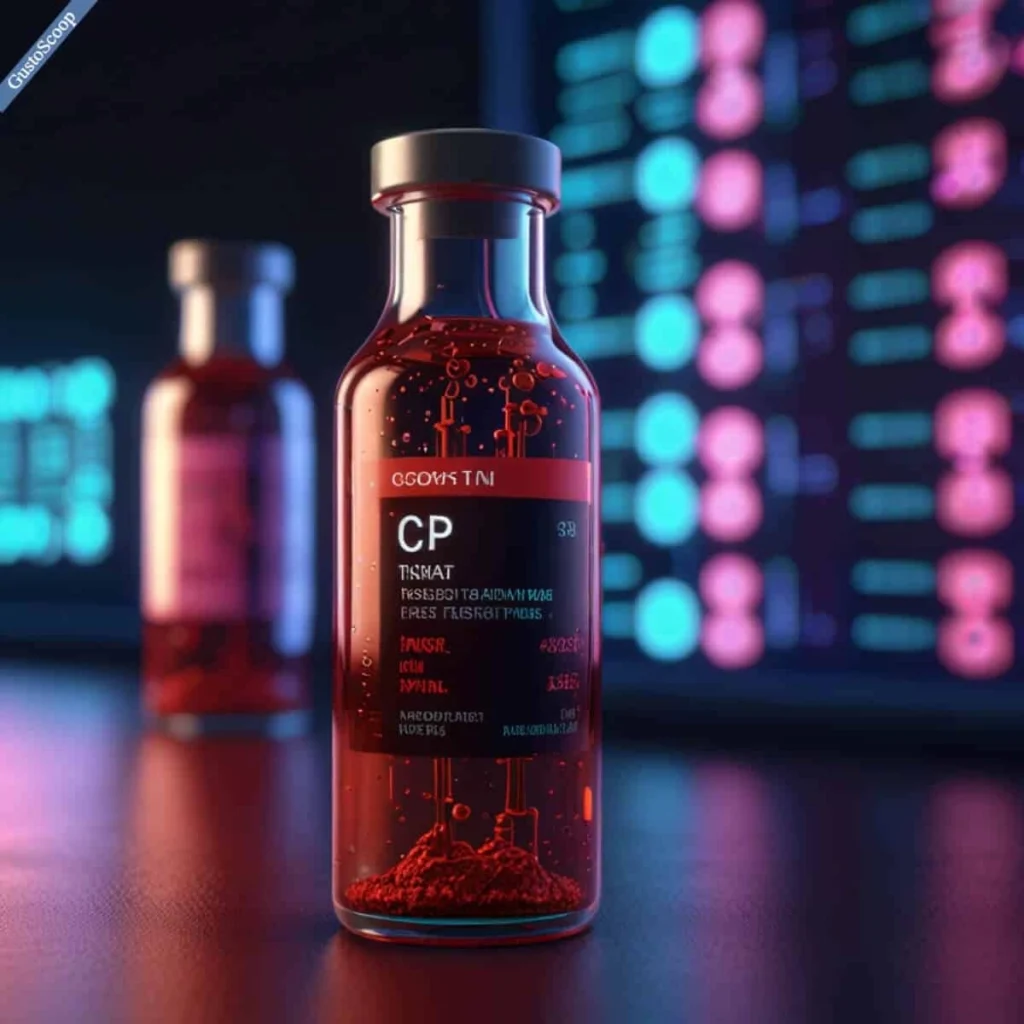
10. Conclusion: Arm Yourself Against the Silent War
CCP isn’t a life sentence—it’s a call to action. If you’re battling unexplained joint pain, fatigue, or burnout, demand a CCP test. Pair early detection with anti-inflammatory diets, stress management (think yoga or meditation), and cutting-edge therapies. As Dr. Elena Rodriguez, a rheumatologist at Johns Hopkins, warns: “Ignoring CCP is like ignoring a ticking time bomb.”
Final Takeaway: Your body’s cries for help are written in antibodies. Decode them—before the war escalates.


